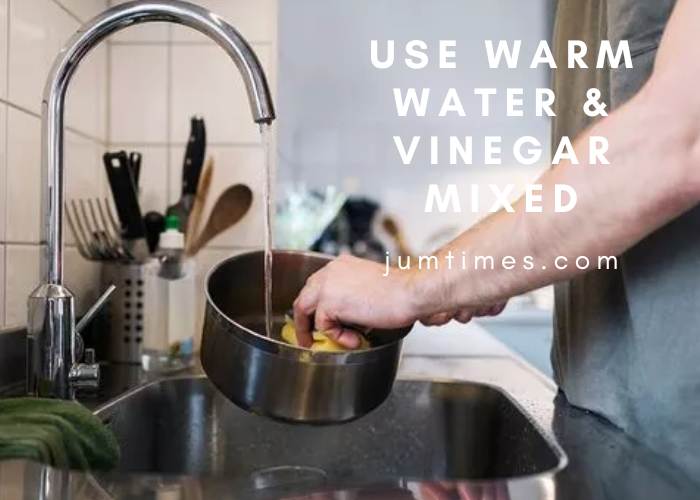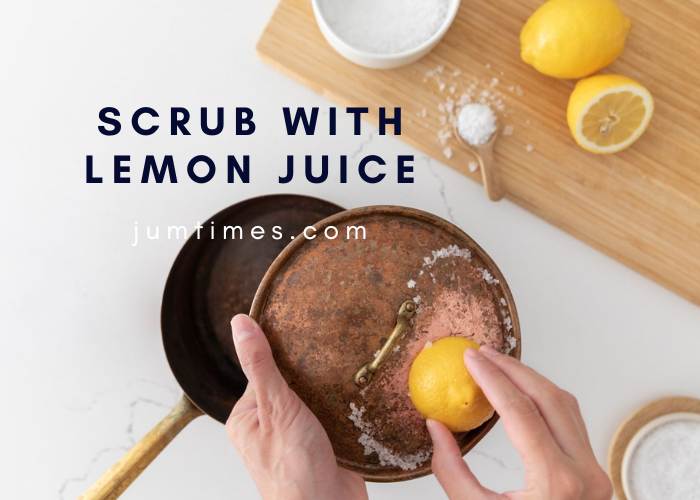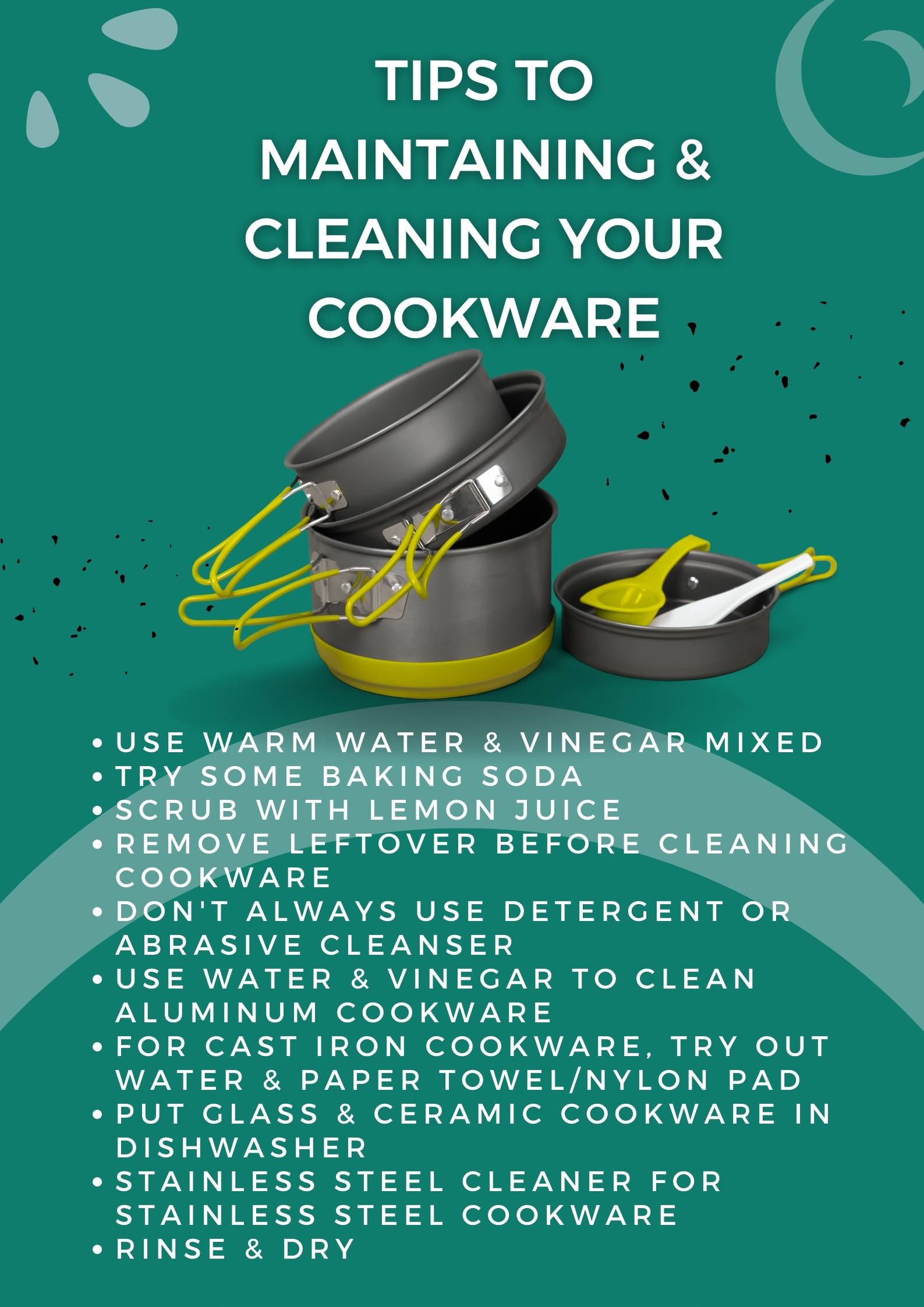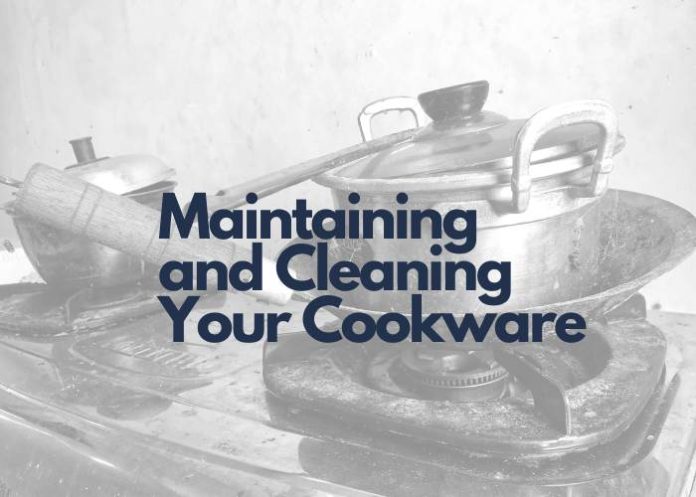Maintaining and Cleaning Your Cookware is a regular job for us, especially for those who must prepare their meal daily. You might have different solutions for removing leftovers and preparing the dishes and utensils for the next use. In that case, you have different cleaning solutions to clean your kitchen things.
Since cookware comes with different materials, you can only use the same detergent or solutions for some. Here are expert tips for maintaining and cleaning your cookware. Today, ten of the most useful expert cleaning tips will be discussed thoroughly to help you clean the cookware better than before.
We’ll use the natural and safest cleaning materials there, including vinegar, baking soda, lemon juice, hot/warm water, and so on. In some cases, a few pieces of cookware might require detergent or soap.
10 Expert Tips to Maintaining & Cleaning Your Cookware
Here are the 10 most useful expert tips to help you clean your best cooking utensils and kitchen cookware. Among them, mixing warm water & vinegar, baking soda, scrubbing with lime juice, water & vinegar, and more like are noteworthy.
1. Use Warm Water & Vinegar Mixed
Most kitchen experts suggest using warm & vinegar to clean your cookware; it doesn’t matter what the material is. You may use a water & vinegar solution to get rid of the strong stains and leftovers within the shortest possible time. Here, the warm water, along with vinegar, goes through the stains, stigma, and other debris.

As a result, they become easy to remove with fresh water. If your cookware needs regular cleaning, you should consider using vinegar. It has all the things to fight against strong dirt and get rid of the strong leftovers easily. No matter what type of cookware it is, you will always get a fresh one. So, keep using vinegar instead of harsh chemical-based cleaning solutions.
2. Try Some Baking Soda
Baking soda is another great cleaning solution for your cookware. Especially it has the PH level and some abrasive materials (good for cleaning) to clean any burnt, damaged cookware. Let’s say you’ve burnt cookware with some food left on it. You fail to remove that using a regular cleanser.
In that case, you should try some baking soda. To get the best and quickest cleaning result, add some baking soda and vinegar to the burnt area. They will remove the leftovers.
In that case, you can book the pan/cookware with some water & baking soda first. If the burnt is too deep and only baking soda fails to remove that, you should add vinegar or lime juice to the mixture. Then, wait for the magic to get a neat & clean cookware surface.
3. Scrub with Lemon Juice
You should go for an abrasive solution when your cookware and stainless steel pots have deep dark or dirt. The combination of sea salt and lime juice might be your cookware’s live savior in terms of removing strong leftovers and burnt areas. To do that, you need to put some sea salt and lime juice over the dirty area.

Leave them for 10 minutes and let them go through the strong leftovers. After that, you need a soft pad to scrub that area with the same paste. It’ll remove all the strong dirt and burnt area within a moment. Keep in mind you can only scrub the same area for a short time since it might damage the surface.
4. Remove Leftover Before Cleaning Cookware
Before using any of the above cleaning materials, you should remove the extra leftovers. Don’t just put the things on the existing food. Try to remove all the remaining foods from your cookware and prepare them for cleaning with natural solutions. It’s better first to wash the cookware with water and then go for the cleaning solutions.
5. Don’t Always Use Detergent or Abrasive Cleanser
From the above discussion, the message is clear from the kitchen experts. That is, you should only partially rely on detergent or an abrasive cleanser. You might have the choice of using abrasive chemical-based cleaning solutions. Never go for them; instead, try to use the above natural cleaning solutions. Try to avoid detergents and abrasive cleansers.
6. Use Water & Vinegar to Clean Aluminum Cookware
As it said, you can use different cleaning solutions for all the materials. For instance, aluminum cookware needs water & vinegar to be cleaned properly. You may use baking soda to remove the hard burnt. However, the water & vinegar mixture would be the best solution for cleaning aluminum cookware and utensils.
7. For Cast Iron Cookware, Try Out Water & Paper Towel/Nylon Pad
You cannot treat cast iron cookware with aluminum or other regular utensils. Therefore, it needs special treatment and materials, including water & paper towels. In fact, a nylon pad would be a good thing to clean off any cast iron surface without damaging it. So, try to get a nylon pad or regular paper towel.
8. Put Glass & Ceramic Cookware in Dishwasher
The dishwasher is the easiest way to clean most of your cookware and kitchen appliances. Unfortunately, you cannot put all the dishes and cookware there because of the safety level. Your utensils and cookware need to be prepared well and marked as dishwasher safe. Only then can you put them in the dishwasher.
9. Stainless Steel Cleaner for Stainless Steel Cookware
Another real challenge would be to select the best cleaner for stainless steel cookware. Here, you should use stainless steel cleaner. It has a safe level of abrasive materials to keep your kitchen things safe. Don’t try to use chemicals or detergent on this type of cookware. Here, this type of specific cleaner helps you get the best cleaning result. You may also search for the required cleaner that is made with particular ingredients.

10. Rinse & Dry
After doing all these things, your last tip would be to rinse the appliance and dry them properly before you store them. First, rinse and get rid of the extra water from the cookware. You may also use the paper towel and do that accordingly. Then, leave your cookware for a while and let them dry properly.
How to Follow Expert Tips to Clean Your Cookware?
Following the expert tips make it easier to clean your cookware. First, you need to classify the cookware based on its materials. Then, go for the particular cleaning solutions. For instance, cast iron cleaning materials are suitable for cleaning with paperwork and work water. That way, you will find the best cleaning method for your particular cookware and follow that accordingly.
What Not to Do With Your Cookware
We’ve discussed the expert tips you may follow in cleaning your cookware. Now, it’s time to know what not to do with your cookware—for instance, scrubbing too much, dishwasher-safe level, and harsh materials.
Don’t Scrub Too Much
Scrubbing too much may make the good things bad and leave a lot of stains. In this case, don’t try to over-scrub the dirty area. You should leave your dirty utensils for a while & remove the leftovers. Only then it will be ready to scrub with the cleaner.
Avoid Harsh Materials/Chemicals
Avoiding harsh detergent or chemical-based cleaning solutions might be a big concern for cookware. Most experts suggest not using harsh materials/chemicals on the cookware.
Be Sure of Dishwasher Safe
It’s common to check your cookware to see if they are dishwasher safe. Putting the regular/normal cookware into the dishwasher might come with some stains or get damaged entirely. So, it’s better to check the cookware if is dishwasher safe.
Closing Words
10 Expert tips for maintaining or cleaning and cleaning your cookware. Always try to use natural and homemade cleaning solutions to avoid further decay. Vinegar, baking soda, warm water, and lime juice are all there to clean any strong dirt & burnt area from your kitchen.
Follow the above tips & pores and get the best cleaning cookware experience daily. They will make it secure and enhance the lasting to a great extent.




